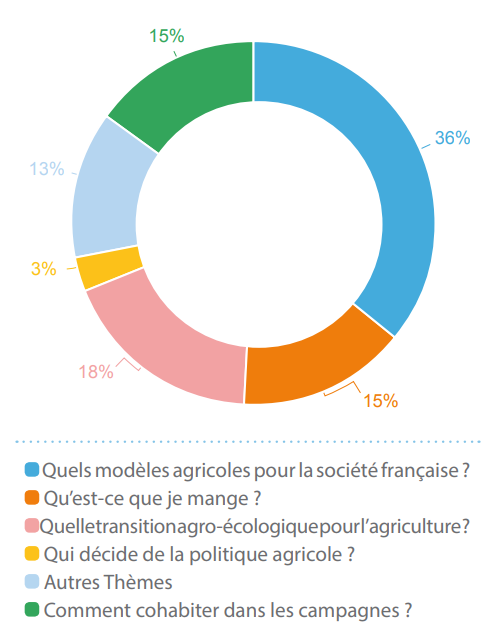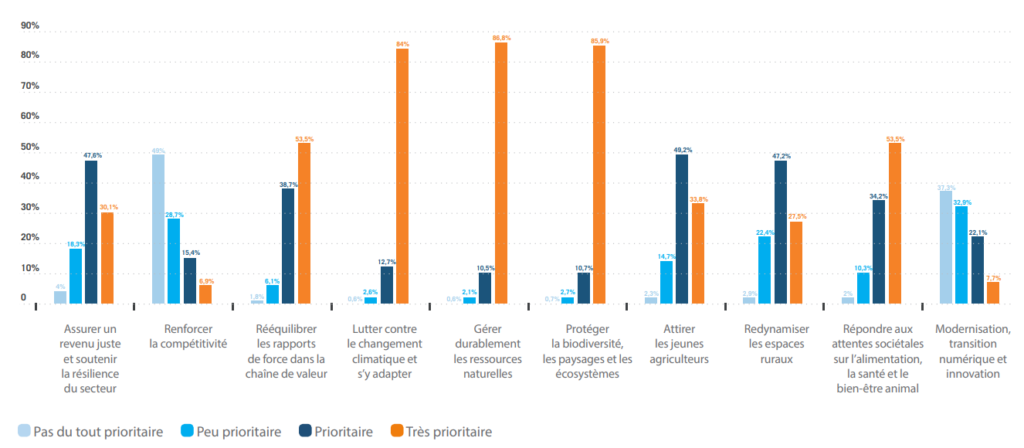French Ministry of Agriculture has tasked the National Committee of Public Debate (CNDP) to organise a public consultation on the CAP Strategic Plan. Analysis of the first round of consultations on the next CAP Strategic Plans held between 23 February and 3 April 2020 provided valuable insights from what French citizens think about the future of agriculture, food and the CAP.
A progress report overviews the results of various types of contributions harvested by the Committee from the launch of the debate during the Salon de l’Agriculture in Paris until its postponement due to the COVID-19 pandemic. During the first stage, the consultation has received 21 485 single visitors online.

A total of 9 506 contributions have been received on six issues: i) Which agriculture for 2021-2027?; ii) What I eat?; iii) Farming models for the French society; iv) Which ecological transition for agriculture?; v) How to live together in rural areas?; vi) Who decides the CAP?
Most of the online contributions were about farming models, with 36% of respondents mentioning it (see the diagram below). A controversial divide arises on the question whether the dominant farming model has to radically change or to be adapted so as to address the ecological transition. The usual conversations on the use of pesticides and the contribution of organic farming were among the most prominent.
Over 7 400 participants have answered the online ‘Majority opinion survey’ in detaching specific CAP priorities. For each CAP specific objective – the nine thematic ones plus a cross-cutting one on modernisation, digitisation and innovation- participants have ranked them according to the priority level: not at all a priority, low priority, priority and high priority.
The three main high priorities chosen were the following: 1) conservation of natural resource; 2) biodiversity protection; and 3) climate change (illustrated by the orange bars in the diagram below). The following high priorities are respectively 4) rebalancing the bargaining power of farmers in the value chain, and 5) answering societal challenges on food, health and animal welfare.
It is worth mentioning that ‘improving the competitiveness’ on one side, and ‘modernisation of farm holdings, digitisation and innovation’ on the other, are perceived as tools or consequences of a more environmental and climate friendly CAP. The diagram below illustrated the hierarchy of priorities resulting from the answers.

Nevertheless, the report highlights some common points among opinions and comments of participants, such as the return to the local and territorialisation of farming policies. Localism means short food supply chains which would allow not only better earnings for farmers but also a better competitiveness and a better living together in rural areas. In this respect, territorialisation of farming policies echoes the need of flexibles adaptations of the CAP at regional level, depending of geographical and soil conditions.
The next round of the consultation will look to what extent is the French Ministry of Agriculture going to build upon these lessons learnt and whether this priority ranking will be kept on board for arbitrations on the CAP Strategic Plan priorities.
The report is accessible at the following link, in French language.